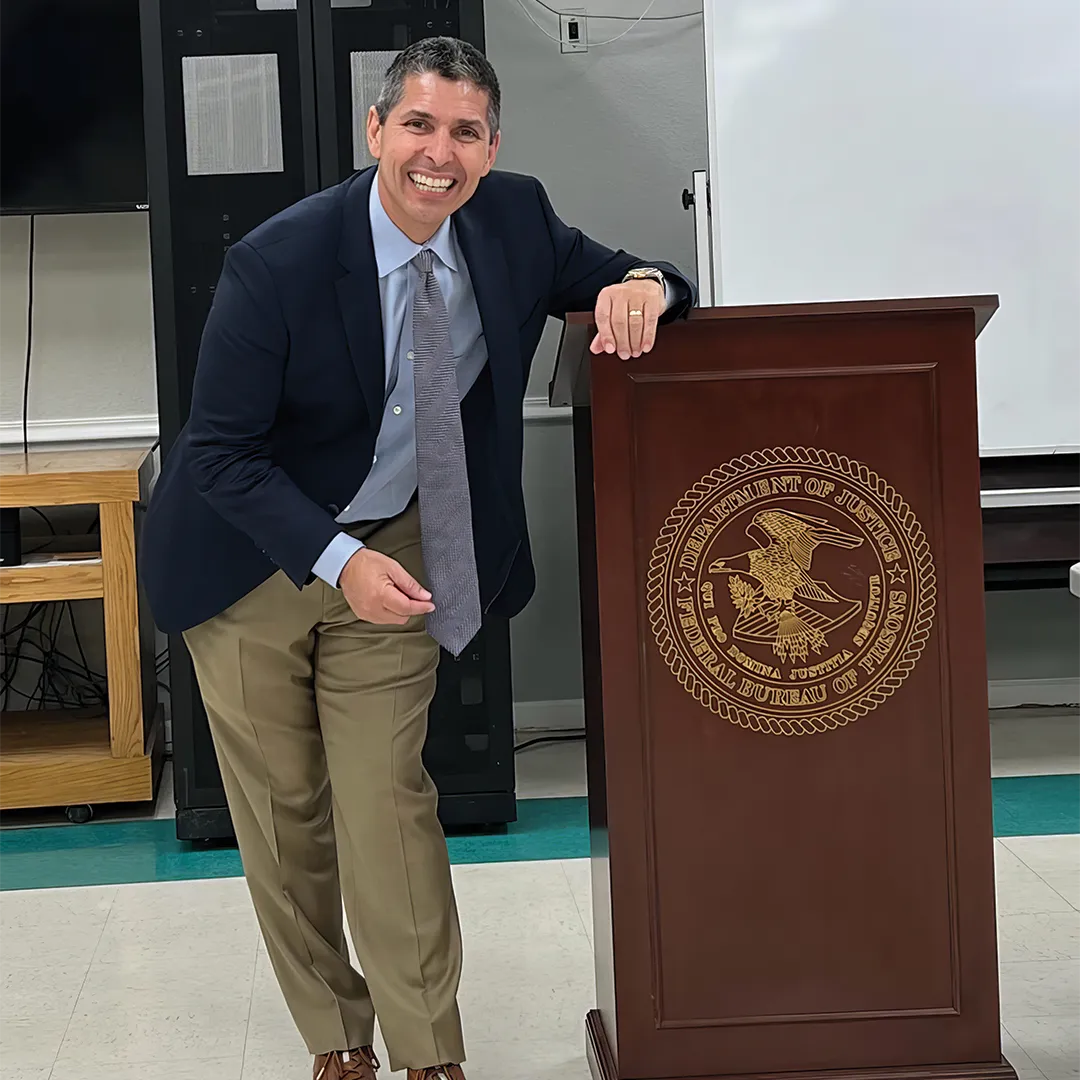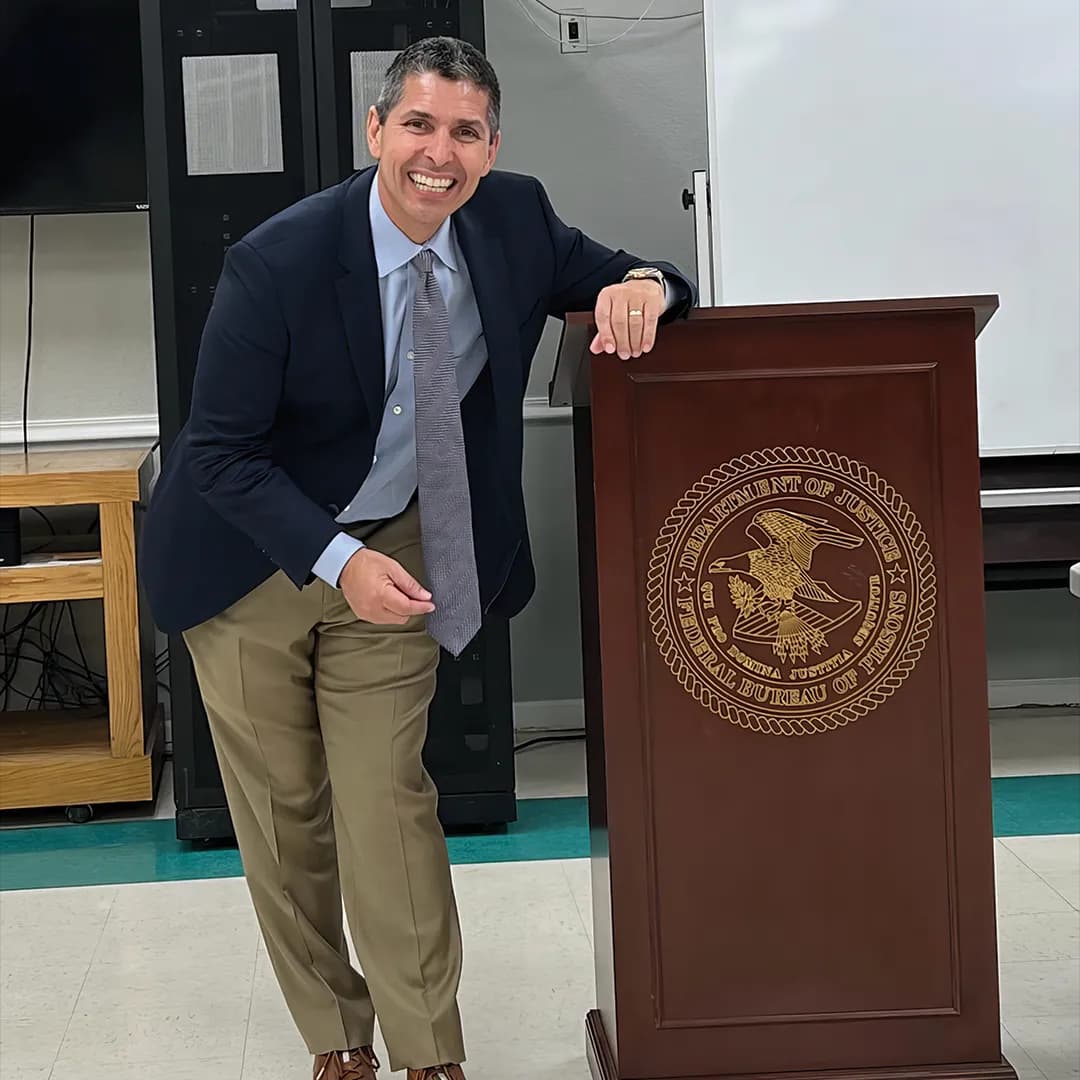
Staff Training at FCI Pekin
When I visited FCI Pekin, I came to deliver a message not only to the people serving time but also to the staff who work every day in the institution. Staff training is vital to improving the culture of confinement. Yet I know from experience that staff members are not always receptive to hearing from someone who served 26 years in federal prison. That reality requires me to be intentional with the way I present.
Offering History and Perspective
Rather than telling staff how to do their jobs, I focus on offering history and perspective. I explain the different prison reform movements I lived through, beginning in 1987 when I first entered the federal prison system.
- I describe the U.S. Parole Commission, which incentivized good behavior by linking decisions about release to an individual’s adjustment in prison.
- I explain how the Willie Horton episode in the late 1980s shifted public opinion and led to tough-on-crime reforms that stripped away incentives.
- I walk through the series of Crime Control Acts that followed, each one making sentences longer and incentives fewer.
- Finally, I highlight how the First Step Act represents an effort to correct course—restoring incentives and providing opportunities for people to earn freedom through merit.
By presenting history in this way, I give staff a clear picture of how policy has shaped their daily work, and why they play such a critical role in carrying out the President’s intention with the First Step Act.
Staff’s Role in Reform
I emphasize that staff are not passive participants. Their influence on prison culture is enormous. They can encourage preparation, reinforce accountability, and recognize excellence. When they support self-directed reentry efforts, they make facilities safer for both staff and residents—and they help people return to society better prepared to succeed.
Prison Professors as a Collaborative Partner
At Prison Professors, our team strives to be a collaborative partner. We provide free, self-directed pathways for people to prepare for success upon release. We encourage individuals to build profiles that memorialize their growth through:
- Biographies
- Journals
- Book Reports
- Release Plans
Those profiles show why people are extraordinary and compelling, and they improve the culture of confinement by motivating others to pursue excellence.
A Shared Mission
My training at FCI Pekin reinforced an important lesson: staff and incarcerated people both play essential roles in reform. By building coalitions, documenting progress, and carrying forward the intent of the First Step Act, we can transform prisons into places that truly prepare individuals for law-abiding, productive lives.
The future of reform lies in incentivizing excellence. Every profile built, every story documented, every lesson learned is a step toward safer prisons, stronger communities, and better outcomes for all.
Would you like me to also prepare a condensed “staff memo” style version (like the Hazelton and Morgantown pieces) that could be shared internally at Pekin to highlight the purpose and impact of your training session?

